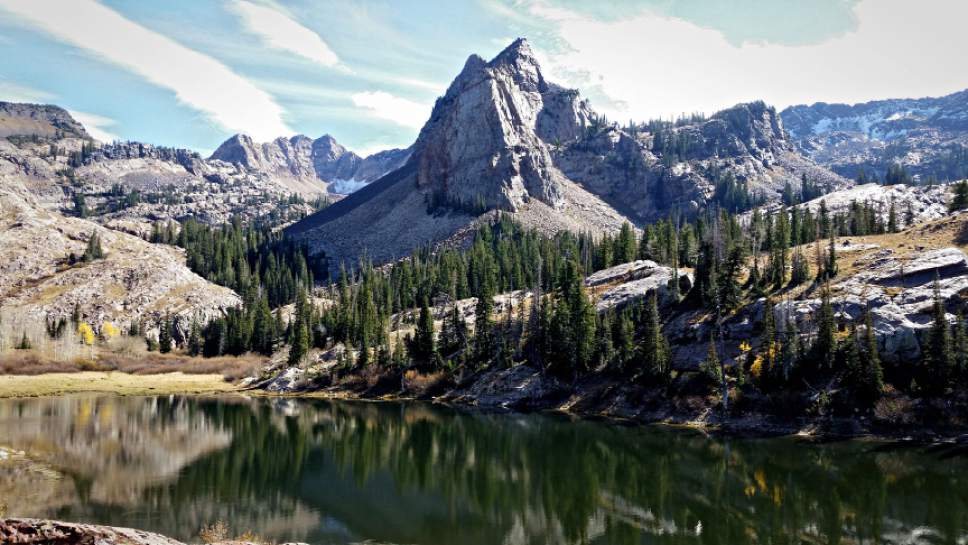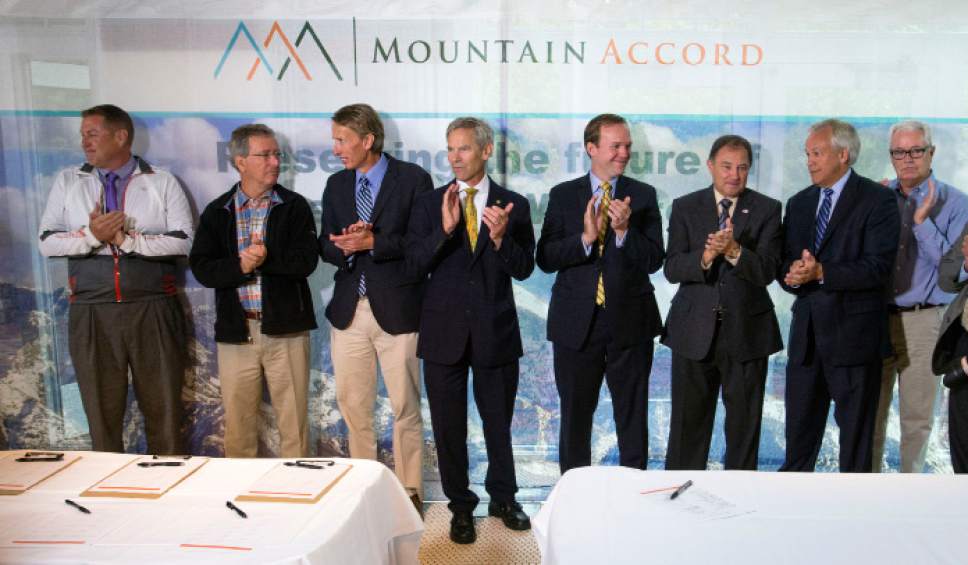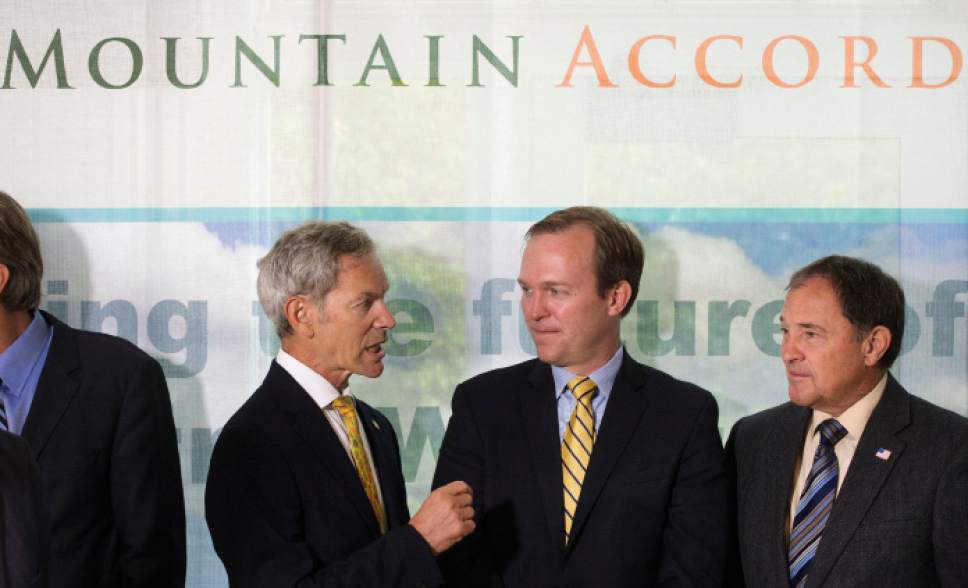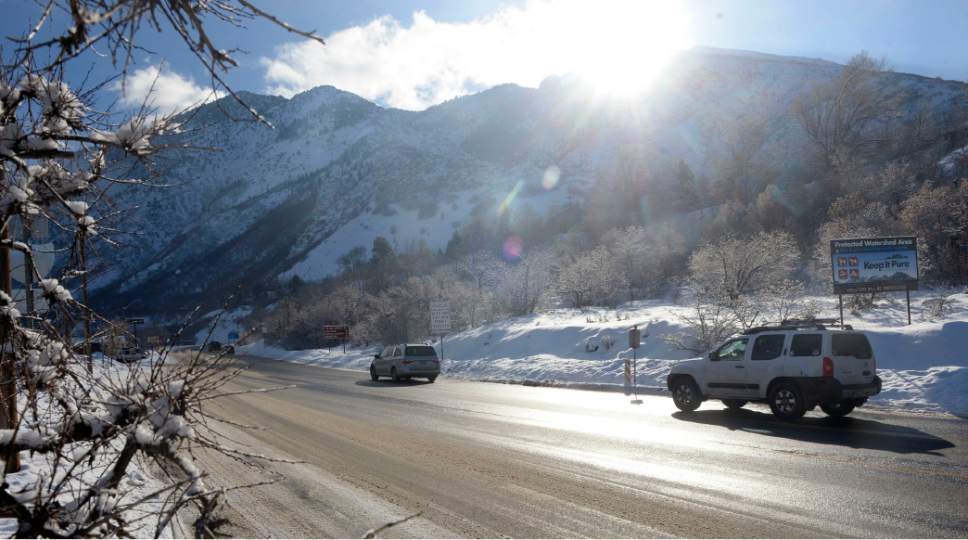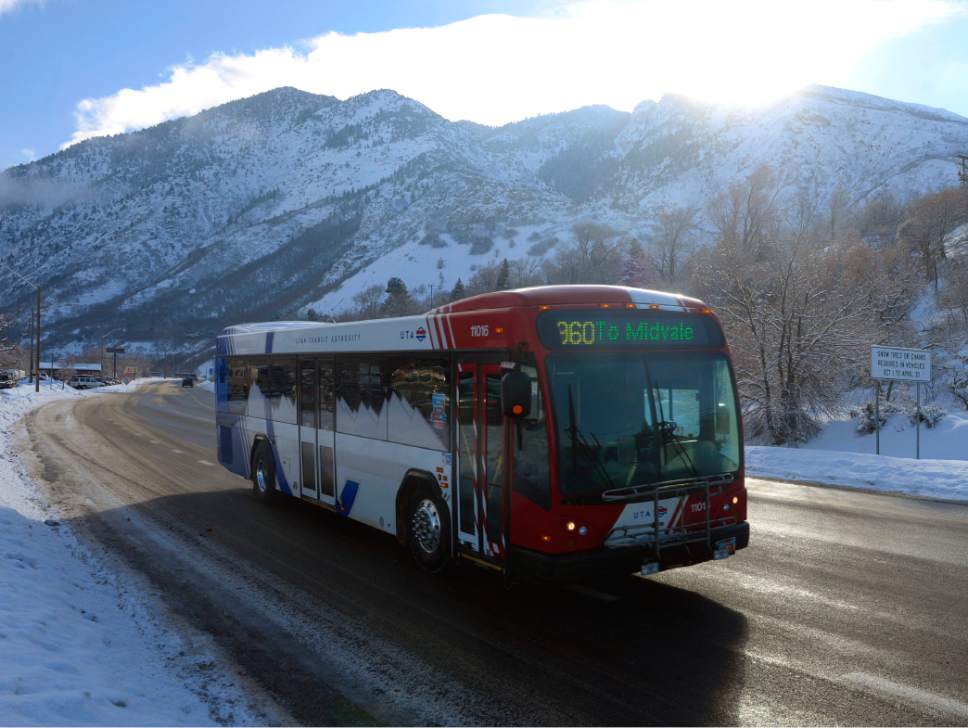This is an archived article that was published on sltrib.com in 2017, and information in the article may be outdated. It is provided only for personal research purposes and may not be reprinted.
The Mountain Accord — a group created to plan for land and population issues in the Wasatch Mountains — is a public body that is subject to open meetings laws, a judge ruled Monday.
Third District Judge Laura Scott refused to dismiss a lawsuit filed in January by a group of Big Cottonwood Canyon residents and landowners who say they were illegally barred from participation in the $8 million planning project that was finalized in 2015.
Salt Lake County attorneys representing the accord and Salt Lake County Mayor Ben McAdams, who is chairman of the group, responded in February by asking the judge to toss the suit. The attorneys argued that the accord is a planning program that includes private members — not a public entity that can be sued under the Open and Public Meetings Act.
Scott disagreed, writing that the accord is a "joint cooperative undertaking" that was created and funded by 11 public agencies that are individually subject to open meeting laws. Simply having a private entity — such as a ski resort — participate in the group does not mean the whole group isn't subject to the law, she wrote.
The judge's ruling said the lawsuit can continue.
But Scott did not decide whether the accord members broke the law when they held meetings in recent years and did not formally include the Big Cottonwood residents and other members of the public in the process.
"They totally excluded private landowners other than the ski resorts," Norm Henderson said at a May court hearing. He filed the lawsuit along with members of the Cardiff Canyon Owners Association.
"We're the ones that potentially have the most at stake because we own property and have cabins up there and all that," he said.
The Mountain Accord's 2015 pact culminated two years of hashing out principles for future Wasatch Mountains use — including environmental protection, canyon public transportation plans, recreational improvements and limitations on development.
It's unclear what would happen if the accord planning group is ultimately deemed to have violated open meeting laws.
Twitter: @lramseth


